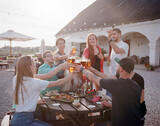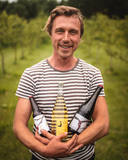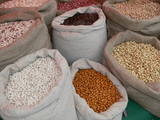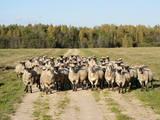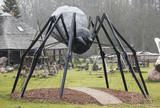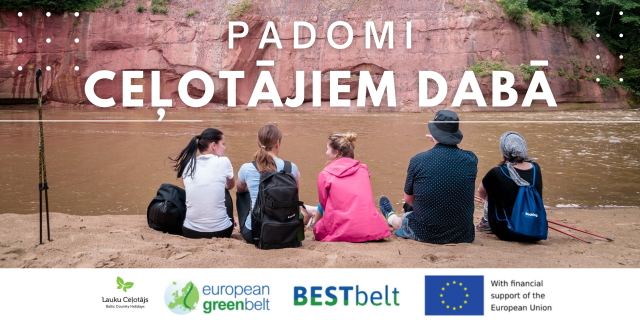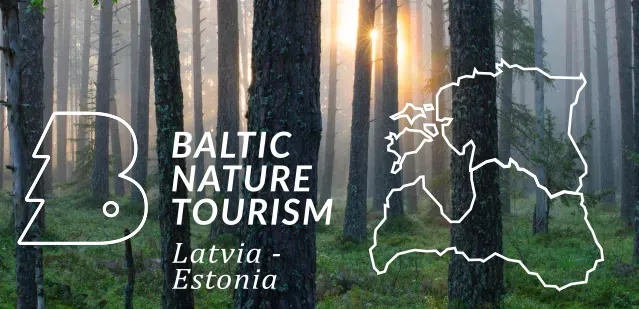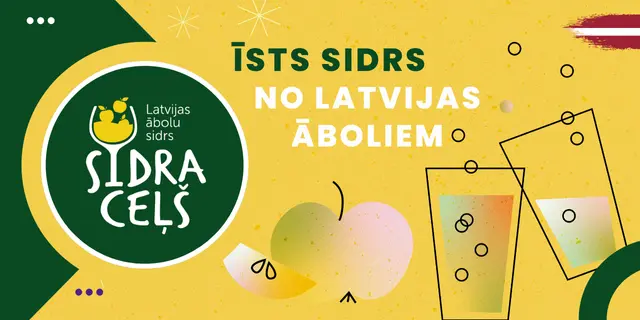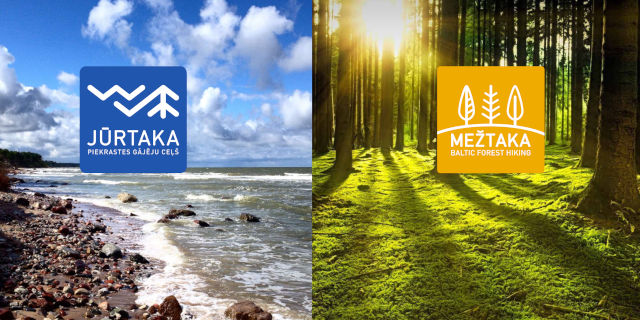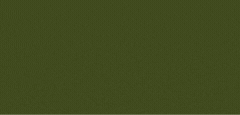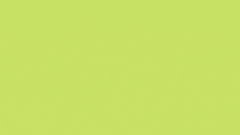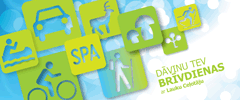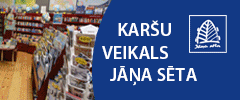Контактная информация
Related objects
| Фото | Название | Описание |
|---|---|---|
|
Во время пребывания в гостях можно узнать историю господской усадьбы и процесс изготовления пива, начиная с натурального сырья, и заканчивая готовым продуктом. Осмотр пивоварни дополняет дегустация живого пива и рассказы о традиционно праздничном латышском напитке. Рядом с пивоварней открыта лавка для торговли живым пивом, домашними лакомствами и памятными вещицами. Корчма «Пивная кухня Валмиермуйжи» популяризируют культуру наслаждения пива в Латвии. В приготовлении блюд используют пиво как составную часть блюда. Современно в латышской манере из домашнего урожая готовят еду и закуски к пиву. Летом работает открытое кафе. Объединяют традиции с современным исполнением. Латышская кухня: Копчености из свинины, филе судака из озера Буртниеку, пюре из зеленого горошка. В качестве гарнира - брусника, айва, тыквы, березовый сок и соус из боровиков. Особое блюдо: Выдержанный кусок свинины в зимнем нефильтрованном пиве. |
||
|
Делают домашнее вино из черники, черной смородины, морошки, дубовых листьев, березового сока, клубники, крыжовника, яблок, клюквы, весенних первоцветов и еще 20 других видов сырья. Хозяин предлагает дегустацию, показывает и рассказывает о процессе виноделия. Дегустация и покупка вин. |
||
|
В погребе бывшей пивоварни «Калнмуйжас» с 2010 года из различных сортов яблок готовят сидр, а из местных ягод – летнее ягодное вино. Здесь предлагают экскурсию, рассказ о технологической стороне получения сидра и дегустацию в ресторане гостиницы «Брузис». |
||
|
Производители спиртовых напитков. В ассортименте продукции – водка «Саркано клиншу уденс» («Вода красных утесов»), водка и настойка из клюквы, брусники, черники, рябины, облепихи и др. Делают особый «Зиемассветку балзамс» («Рождественский бальзам»). Предлагают экскурсию, интересно рассказывают о процессе приготовления напитков. |
||
|
В мастерской кузнеца выставлены работы - фонари, подсвечники, петли, приспособления для камина, перила для лестницы, ворота, а также экспонаты 18 века. Посетители могут сами выковать гвоздь. «Проверки» молодых пар у кузнеца. Принимаются заказы. |
||
|
В старой кирпичной печи готовят глину, которую используют многие керамисты Латвии. Тут же на производстве делают (ручная работа) полезные в хозяйстве вещи и предметы дизайна. Проводят экскурсии, увлекательно рассказывают, организуют творческие мастерские и принимают индивидуальные заказы. |
||
|
Ярмарка проходит в Страупе ‒ в здании «Лошадиной почты». Она работает под брендом Earth Markets, созданным престижной международной ассоциацией Slow Food, и предлагает хорошую и экологически чистую продукцию, выращенную добросовестно и в соответствии с принципами долгосрочного и ответственного использования земли и уважительного отношения к местным ремеслам и традициям. Во время ярмарки работает кухня Страупской «Лошадиной почты», предлагающая латышские традиционные блюда, приготовленные из местных продуктов. |
||
|
В хозяйстве можно ознакомиться с обширнейшей в Видземе экспозицией целебных растений под открытым небом - ~ 300 видов и сортов. Во время экскурсии можно узнать много нового об использовании растений в пищу и для восстановления здоровья человека. Хозяйство «Ладе» в «Авотини» начнет работу 15 мая 2014 года (до этого – «Саутлачи» в волости Видрижу). |
||
|
Сельский дом "Донас" *Object Inactive*
|
Выпечка хлеба в «Донас» проходит по традициям предков: вначале тесто бродит в деже, затем поднимается, вымешивается, на листьях клена делаются буханки, и их ставят в настоящую дровяную печь. У гостей есть возможность каждому самому сделать и отвезти домой свой приготовленный в гостях хлеб. Ничего не может быть вкуснее как теплая горбушка хлеба с молоком и медом. Предлагаются и другие дары латышской деревни, например, копчные котлеты, кровяная колбаса. Если понадобится, то будут и 17 видов сыров! Латышская кухня: Перловая каша, квашеная капуста, деревенские котлеты, 21 сорт сыра, молоко, мед, травяные чаи, деревенский хлеб. Особое блюдо: Кисло-сладкий хлеб от «Донас». |
|
|
На практических занятиях ремесленница приглашает почувствовать связь с глиной, поработать на гончарном круге и каждого развивать его творческие способности. После обжига керамики в печи, работы можно будет взять с собой как хороший сувенир и как подтверждение своего новоприобретенного навыка. Выращиваются пряные растения и чаи. Дегустация чаев. |
||
|
Семейное предприятие предлагает высококачественные продукты традиционного пчеловодства из Национального парка Гауи (~ 150 семей) - мед, пыльца, пчелиный хлеб, воск и прополис и создает новые, небывалые еще на рынке продукты, которые удовлетворяют необычные, но здоровые пожелания клиентов. Экскурсия, покупка меда. |
||
|
Хозяйка проводит экскурсию с осмотром африканского страуса, ланей, овец породы Soay и экзотических и домашних птиц. Посетителям предлагается знакомство с животными и приобретение сувениров. |
||
|
На полях хозяйства (разместилось в доме прислуги бывшей господской усадьбы «Кемпену») пасется более 200 голов Латвийской темноголовой овцы. Здесь можно приобрести мясо, шерсть, кожу и принять участие в познавательной экскурсии с дегустацией, ловить рыбу и дегустировать форель (рыба только для клиентов, которые остаются на ночлег). |
||
|
Сохранилось в рабочем состоянии выпущенное в XIX веке на латвийском машинном заводе «Шуберт Рудзитис & т-щи» чесальное и прядильное оборудование, произведенная в Германии уникальная прядильная машина и мельница с жерновыми поставами. На представленном 100-летнем старинном устройстве по переработке шерсти изготавливаются одеяла и подушки, наполненные набивкой из овечьей шерсти (ручная работа), и сувениры, которые можно заказать и купить. Предлагаются экскурсии, пекут хлеб. Латышская кухня: Маринованная салака с овощами, букстиньпутра, картофельное пюре по-Видземски (с жаренным луком), блинчики с вареньем из латвийских ягод и меда, хлеб собственного приготовления. Особое блюдо: Крендели из заварного теста и хозяйский суп из шести видов рыбы. |
||
|
Крестьянское хозяйство "Муйжниеки" *Object Inactive*
|
Один из крупнейших питомников разных пород коз в Латвии (> 100 коз), где работают с современными технологиями доения и сохранения молока. Хозяйка предлагает экскурсию, знакомство с животными, дегустацию и приобретение козьего сыра. |
|
|
В комплексе отдыха «Ракши» можно увидеть одногорбых и двугорбых верблюдов, лам, альпак и гуанако. Предлагается дегустация блинов из полезного для здоровья молока верблюдов, переходы на ланях и езда верхом на верблюде, а также другие активные развлечения. |
||
|
В хозяйстве выращивают около 25, но готовят продукты из ~ 50 всевозможных видов растений. Экскурсантам объясняют, как лечебные растения могут использовать не только как чаи, но и в маслах, выдержках, тинктурах, сиропах и в других видах, используя их также и как ежедневные продукты питания. Предлагают дегустацию продукции, приобретение и совместные занятия. Осмотр сельских домашних животных. |
||
|
Хозяйка предлагает интересную экскурсию, рассказы о шиншиллах, клетках животных, а также осмотр и приобретение перепелов. |
||
|
В хозяйстве из айвы делают цукаты, мармелад, сиропы и другую продукцию. Во время сезона можно купить яйца и кур. На полях и лугах «Яуниевини» с 2002 года пасутся дикие лошади, которых можно осмотреть в сопровождении гида. |
||
|
'Приусадебное хозяйство "Леясвагали" *Object Inactive*
|
С точки зрения сортов тыкв (до 80 сортов) - богатейшее место в Латвии! Хозяйка рассказывает о выращивании тыкв и об их значении в здоровом питании. Предлагает приобрести продукцию, сделанную из тыквы (знак Lucky Pumpkin) - цукаты, нектар, пюре, маринады и мармелады. Осенью выставляют внушительную экспозицию с названиями сортов тыкв. |
|
|
В ложкарной мастерской рождаются полезные вещи - деревянные ложки, кухонные дощечки, ножи для масла, лопатки для сковороды и др. Интересующиеся из специальной заготовки могут сделать свою деревянную ложку, а также осмотреть уже готовые ложки более чем из 17 пород деревьев, растущих в Латвии. Летом предлагаются «Блинные экскурсии» с вкусным вареньем. Покупка ложек и домашнего вина. |
||
|
На керамическом производстве (работает с 1980 г.) из латвийской красной глины вручную делают разную хозяйственную посуду и предметы интерьера. Здесь ждут как туристические группы, так и отдельных путешественников, которым предлагают экскурсию с рассказом и осмотром производства, и самим попробовать изготовить сувениры из керамики. |
||
|
Творческая мастерская "Эзерени" *Object Inactive*
|
В красивой построенной в сельской среде мастерской можно приобрести и заказать интересные работы, в которых объединены разные материалы - камень, стекло и металл. Можно договориться о демонстрационных работах ремесленников со стеклом и камнем, а также самым поучаствовать в творчестве. |
|
|
На полях крестьянсого хозяйства пасется более чем полторы сотни овец. Построена станция для кормления баранов, организуются аукционы животных и Дни овец. Хозяин проводит экскурсии, предлагает приобрести племенных овец и продукцию овцеводства. |
||
|
В болоте Лаугас впервые в Латвии (1992 г.) начали выращивать крупноплодную клюкву. Сейчас здесь зеленеют 6 выведенных в Латвии сортов клюквы, в т.ч. дижбруклене – результат скрещивания американской крупноплодной клюквы и латвийской брусники. Предлагаются лекции, консультации, экскурсию по болоту Лаугас, приобретение клюквы и продуктов ее переработки и приобретение дерна с плодоносящей клюквой. |
||
|
В хозяйстве выращивают посевную коноплю, из семян которой добывают конопляное масло и делают грубый помол. Около клети (101 год) выставлены старинные инструменты, при помощи которых обрабатывались волокна конопли. Здесь можно попробовать и приобрести вкусную продукцию, а также отправиться в увлекательное путешествие в прошлое, рассказывающее об истории выращивания конопли. Латышская кухня: Грубый и мелкий помол конопли, булочки из конопли, гренки из конопли, конопляное масло. |
||
|
Кузница находится на территории комплекса средневекового замка Цесу. Здесь можно посмотреть, заказать и приобрести украшения, подобные старинным, понаблюдать за работой мастера и послушать увлекательный рассказ об истории изготовления украшений, и самим испытать их «на своей коже». |
||
|
Крестьянское хозяйство "Вилдени" *Object Inactive*
|
В хозяйстве можно увидеть более 20 пород кур, африканских страусов, павлинов, фазанов, перепелов, индеек, жемчужных кур, павлиньих голубей и других экзотических птиц, карликовых свиней, пони, кроликов, байбаков, ланей и домашних животных. Экскурсия, во время сезона - покупка яиц птиц. |
|
|
Нетрадиционный питомник сельскохозяйственных животных "Эзерлеяс" *Object Inactive*
|
В просторных вольерах хозяйства можно увидеть ланей, муфлонов, коз различных пород и свиней (также овцесвиней), птиц - павлинов, фазанов, кур разных пород, уток, страусов и др. Хозяева проводят экскурсии, в сезон (V - X) предлагают яйца домашних птиц, продукцию из оленьего мяса, знакомство с животными, а в собственном построенном магазинчике – косметические товары, выпущенные в Латвии. |
|
|
Хозяин предлагает экскурсию по пчелиной пасеке в шапках для пасечников. Знакомит с процессом производства меда, демонстрирует видео и угощает 6 – 7 видами разного меда. Если гости пожелают, пожарит блины. Приобретение продукции. |

